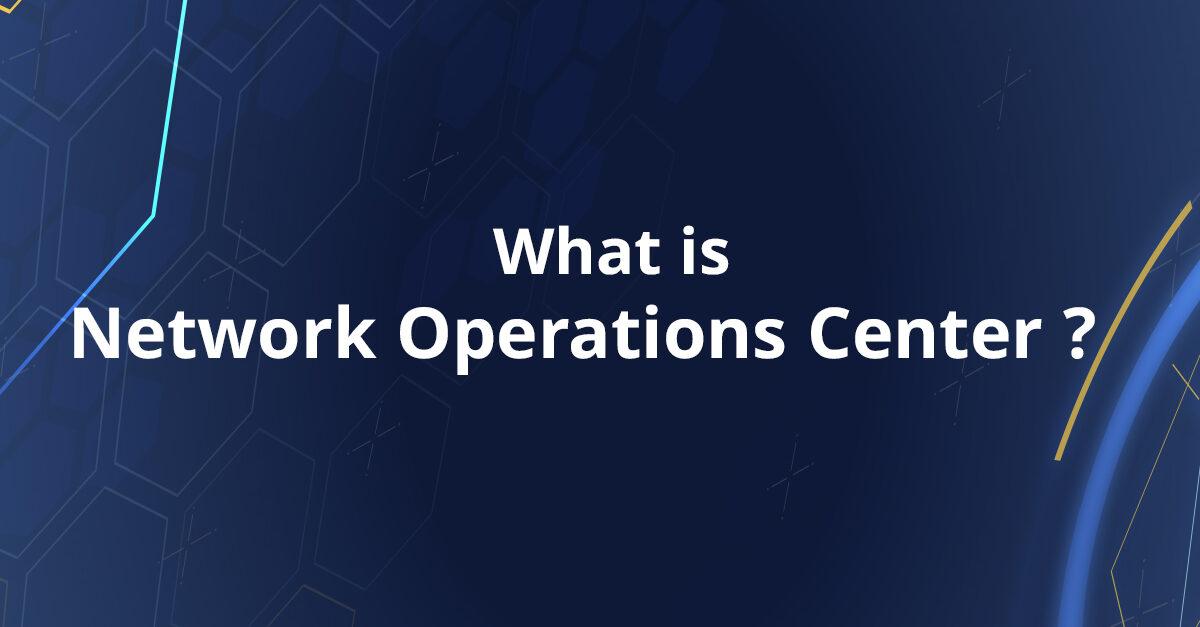What Is a Network Operations Center (NOC)?
Network operations centers (NOCs) are centralized or distributed locations where network engineers monitor network performance and health. They also help detecting anomalies, such as security breaches, outages, and denial-of-service attacks.
NOCs are often divided into three different sections: management, engineering, and operations.
Management handles the administrative tasks that keep the NOC running smoothly.
Engineering is responsible for monitoring the performance of networks in order to identify issues or problems before they get out of hand.
Operations is in charge of maintaining overall security by detecting anomalies and implementing solutions to resolve them.
Why Network Operations Center is important?
The NOC is the nerve center of any IT infrastructure. It houses the monitoring and management systems that keep the network operational and maintain infrastructure performance and availability.
NOCs are also responsible for monitoring and managing critical activities such as:
Network Devices and Servers problems
OS and Software installations, updates, and patch management
Storage , Backup and Disaster Recovery.
Incident management and response.
Security system management such as firewall and IPS.
Intrusion detection and threat analysis.
Vendor and contract management
SLA and policy enforcement.
How a NOC should be designed?
A NOC usually has one or more dedicated control rooms with big screens to provide real-time monitoring. It should be designed in such a way that it has everything required for the efficient running of the network.
It is equipped with powerful equipment that monitors the system or network for any signs of an incident or alarm that may require management attention. This equipment might include intrusion detection systems (IDS), intrusion prevention systems (IPS), firewall monitoring, network traffic analysis software, and other tools.
The NOC staff members are highly skilled in order to deal with any incidents that may arise quickly and efficiently.
How to choose your NOC tools?
NOC tools are a critical part of any organization’s IT infrastructure and can be used in various ways. It is important to choose the right NOC tool for your business needs.
A lot of NOC tools offer similar features, so it is important to know what your requirements are before making a decision.
NOC tools features include but not limited to:
Monitoring and Analytics Tools: These tools allow you to monitor and analyze your network, system, and application performance on a continuous basis. They also provide metrics-based reports which can help identify the root cause of any issue in your network or system.
Automation and Machine learning: The more automation there is in a NOC tool, the less time it takes to perform tasks – this saves human resources and lets them focus on higher-level tasks or take care of other work that needs more attention.
Ticket management : These tools allow you to create tickets, assign them to specific users, assign priorities, attach files and comments. They also allow you to filter tickets by priority or status which is a very useful feature for a dynamic environment where customer requests keep coming in all day long.
In addition, when choosing your NOC tools you need to consider the scalability of the tool and the integration capabilities with other third-party applications and the support options available from various vendors.
What are Network operations center best practices?
It is important to have a clear understanding of how to operate a Network Operations Center. Network Operations Centers have many best practices that should be followed in order to ensure that they are running smoothly:
One of these best practices is training programs that are offered for new employees or current employees who want to brush up on their skills.
Another one is knowledge development programs which can help with troubleshooting problems before they happen.
The NOC should have a clear set of metrics to measure the performance of its services. The goal is to have a clear understanding of what constitutes excellent performance for each service.
Clear roles and responsibilities are required for all employees in order to avoid confusion or miscommunication.
NOC also needs to make sure that they enable strong communication between teams and departments to improve collaboration and reduce delays in resolving issues.
They should also be able to provide Business Continuity if their data center goes offline due to an outside event like a natural disaster or cyberattack.

